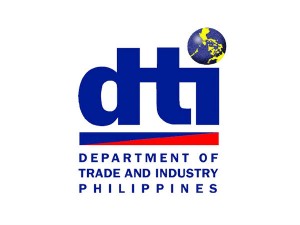The Department of Trade and Industry is hoping to make significant headway in improving the competitiveness of the micro, small and medium sized enterprises (MSMEs), which will receive the bulk of the agency’s planned P4.25 billion budget for 2017.
This represented the thrust of the current administration toward boosting “employment and entrepreneurship in the country as a means to uplift the quality of Filipinos and alleviate poverty.”
Trade Secretary Ramon Lopez explained that a little more than half of the budget they have filed before Congress will be invested in initiatives for MSMEs, from the training, shared services facilities (SSFs), to the different roadmapping activities for local industries, among other measures.
Data from the Department of Budget and Management showed that the DTI has allocated P535 million “for the establishment of Go Negosyo Centers to promote ease of doing business and facilitate access to services by MSMEs in accordance with the Go Negosyo Act or Republic Act No. 10644. All similar activities undertaken by the DTI shall now be implemented by the Negosyo Centers.”
Go Negosyo Centers usually serve as a one stop shop for MSMEs. These are expected to hasten the business application process of local enterprises in coordination with the local governments and other concerned agencies. These centers are likewise mandated to provide business advisory services such as facilitating access to grants, financial assistance and shared service facilities.
Another P70 million meanwhile will be allocated for SSFs which are expected to “improve the quality and productivity of MSMEs and the establishment of business resource centers.” The SSF is a flagship program of the DTI which seeks to address the low production capacity of existing industries in the rural areas.
By providing MSMEs with the necessary equipment, the products’ marketability and efficiency are expected to be enhanced, which in turn would generate more quality jobs and better income.
Roughly P90 million would be appropriated under the so-called Promotion and Development of Small and Medium Industries and shall be used for “assistance to disadvantaged municipalities which shall be determined based on the magnitude of poor families, vulnerability to disasters and other criteria,” according to the DBM.
The DTI also plans to allocate P3.4 million for the implementation of remedies such as safeguard measures; and P76.62 million to support the program beneficiaries development component of the Comprehensive Agrarian Reform Program.
In addition to these appropriated amounts, the DTI targets to budget P21.32 million for the MSME Development Council Fund, for further development of local enterprises. This proposed allocation shall be sourced from 90 percent of the total penalties collected by the Bangko Sentral ng Pilipinas from lending institutions, as provided under RA No. 9501 or the Magna Carta for MSMEs.
The rest of the budget will be allocated for trade and industry policy services; trade and investment promotions; technical advisory; consumer protection; and trade regulatory services, among others.
In total, the DTI and all its attached agencies will get a total budget of P7.95 billion, which is 20 percent higher than the P6.64 billion budget this year.
Under this proposed budget, the Philippine Economic Zone Authority will get P2.76 billion; Board of Investments, P401 million; Center for International Trade Expositions and Missions (Citem), P220 million; Construction Industry Authority of the Philippines (P111 million); Design Center of the Philippines (P96 million); Aurora Pacific Economic Zone and Freeport Authority (P59 million); and Philippine Trade Training Center (P58 million).


